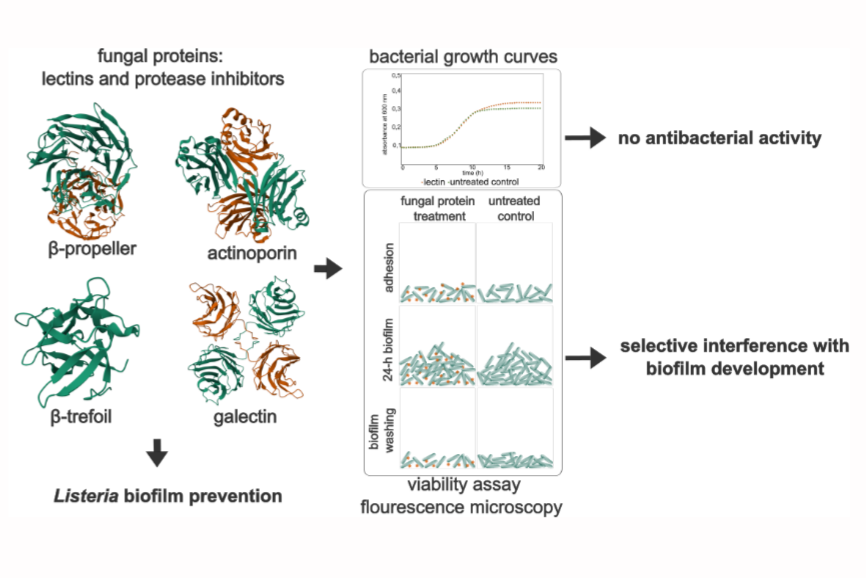
Exposure to fungal lectins impairs biofilm formation of Listeria
- Post by: Ana Mitrović
- 14.April, 2025
- Comments off
The researchers in the team led by Dr. Jerica Sabotič, in collaboration with colleagues from the Department of Condensed Matter Physics and the Department of Biochemistry and Molecular and Structural Biology of the Jožef Stefan Institute, as well as researchers from the Biotechnical Faculty of the University of Ljubljana and the Hungarian University of Agriculture and Life Sciences, have published a study on the effects of functional fungal proteins on Listeria biofilms in the journal Microbial Biotechnology, which provides promising results in the fight against Listeria biofilms, which are of great importance for food safety and public health.
The research study investigates the effects of specific fungal lectins on the adhesion and biofilm formation of Listeria monocytogenes and its potential surrogate organism Listeria innocua on polystyrene. The study found that exposure to some of these fungal lectins during the adhesion phase significantly impaired the development of Listeria biofilms. This highlights the potential of fungal proteins to modulate interactions between bacteria or/and surfaces and may represent an alternative approach to reduce surface contamination by bacteria. This discovery is crucial as biofilms form, providing a protective environment for bacteria and making them highly resistant to conventional cleaning and disinfection methods. The study was supported by the Slovenian Research and Innovation Agency. The team is confident that their work will pave the way for new or complementary strategies in dealing with bacterial biofilms and ultimately contribute to improving public health in the long term. For more details, you can view the full study here: https://doi.org/10.1111/1751-7915.70040

